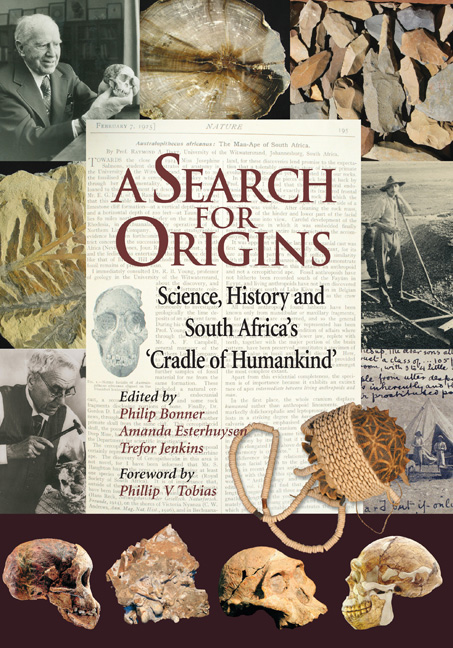Book contents
- Frontmatter
- Contents
- Map
- Foreword
- PART 1 Introduction: Africa is Seldom What It Seems
- PART 2 Introduction: Fossils and Genes: A New Anthropology of Evolution
- PART 3 Introduction: The Emerging Stone Age
- PART 4 Introduction: The Myth of the Vacant Land
- Chapter 9 The Early Iron Age at Broederstroom and Around the ‘Cradle of Humankind’
- Chapter 10 Tswana History in the Bankenveld
- Chapter 11 The Early Boer Republics: Changing Political Forces in the ‘Cradle of Humankind’, 1830s to 1890s
- PART 5 Introduction: The Racial Paradox: Sterkfontein, Smuts and Segregation
- Epilogue: Voice of Politics, Voice of Science: Politics and Science After 1945
- Notes, references and recommended reading
- Notes on contributors
- Acknowledgements
- Index
Chapter 11 - The Early Boer Republics: Changing Political Forces in the ‘Cradle of Humankind’, 1830s to 1890s
from PART 4 - Introduction: The Myth of the Vacant Land
Published online by Cambridge University Press: 31 May 2019
- Frontmatter
- Contents
- Map
- Foreword
- PART 1 Introduction: Africa is Seldom What It Seems
- PART 2 Introduction: Fossils and Genes: A New Anthropology of Evolution
- PART 3 Introduction: The Emerging Stone Age
- PART 4 Introduction: The Myth of the Vacant Land
- Chapter 9 The Early Iron Age at Broederstroom and Around the ‘Cradle of Humankind’
- Chapter 10 Tswana History in the Bankenveld
- Chapter 11 The Early Boer Republics: Changing Political Forces in the ‘Cradle of Humankind’, 1830s to 1890s
- PART 5 Introduction: The Racial Paradox: Sterkfontein, Smuts and Segregation
- Epilogue: Voice of Politics, Voice of Science: Politics and Science After 1945
- Notes, references and recommended reading
- Notes on contributors
- Acknowledgements
- Index
Summary
Two forces drove the frontier of white expansion and settlement forward into the interior of southern Africa in the late eighteenth and early nineteenth centuries. The first was the attraction for pastoralists of grazing lands for their herds and for hunters of ivory and skins; the second a desire on the part of the colonial government at the Cape to have reliable scientific knowledge about the people and natural resources of the region.
Trekboers and explorers
The trekboer movement had begun many decades earlier, as a number of factors both pushed the less wealthy farmers out of the confines of the Cape Colony and propelled them further northwards and eastwards. Dependent on a life of semi-nomadism or transhumance so as to be able to move at liberty to better grassland when it became seasonally available, small communities of Dutch/Afrikaans-speaking pastoralists had sparsely populated the interior by the end of the 1700s. Because of the increasing distances between them and colonial urban centres, the trekboers came to rely almost completely on the natural resources of the area for their physical sustenance. They made extensive use of animal hides for ropes, blankets and even for clothing, and used local materials for shelter and other basic requirements, thus limiting their expensive imports to essentials such as guns, gunpowder, coffee, tobacco and sugar (see van der Merwe 1938, 1945; Guelke 1989: 90–91). Etherington explains that while many trekboers might have aspired to ‘stay put and make a modest living’, the land could not support a dense population and groups therefore remained small and relatively mobile (Etherington 2001: 48–49).
The second force that motivated exploration into the interior was the need for scientific information about the people and resources – especially wildlife and the rumoured mineral wealth – of the sub-continent. Once the Cape came into British hands after 1795, exploration into the ‘Far Interior’ was facilitated by the new government with its objective of deliberate colonial settlement and the maximisation of economic opportunity and mercantile penetration; this was a different approach from that of its predecessor, the Dutch East India Company.
- Type
- Chapter
- Information
- A Search for OriginsScience, History and South Africa's ‘Cradle of Humankind’, pp. 180 - 200Publisher: Wits University PressPrint publication year: 2007



